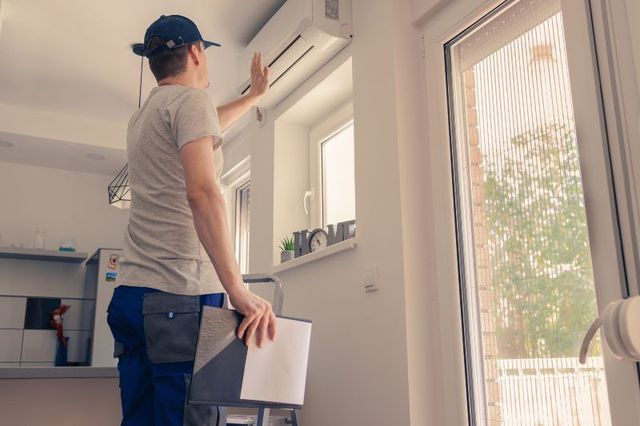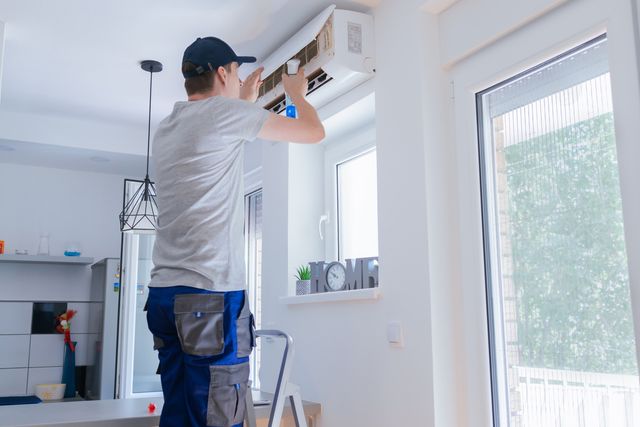As a homeowner or business owner, encountering a musty smell emanating from your ducts can be quite unsettling. This unpleasant odor not only affects your indoor air quality but can also lead to discomfort and potential health issues. Understanding the causes of musty duct smell and implementing a long term fix is essential for maintaining a fresh and healthy environment.
One of the primary causes of musty duct smell is the accumulation of moisture within the ductwork. Over time, moisture can lead to mold and mildew growth, which are common culprits behind that distinctive musty odor. Addressing this issue promptly is crucial to preventing further complications.

Understanding the Causes
To effectively tackle the problem, it’s important to identify the root causes of the musty smell. This will help you implement the right solutions for a long term fix.
1. Moisture Accumulation
Moisture is the enemy of a clean air duct system. When moisture accumulates, it creates the perfect environment for mold and mildew to thrive. This can occur due to leaks, inadequate ventilation, or humidity issues within your home.
2. Mold and Mildew Growth
Mold and mildew can develop within the ductwork when moisture is present. They release spores that contribute to the musty smell and can also trigger allergies or respiratory problems.
3. Dust and Debris Buildup
Dust and debris can collect in your ducts over time, providing a breeding ground for mold and bacteria. Regular cleaning can help prevent this buildup and reduce the risk of odors.
4. Poor Ventilation
Inadequate ventilation can trap moisture and odors inside your duct system. Ensuring proper airflow is crucial for preventing musty smells.
Long Term Fixes
Implementing effective long-term solutions is essential to eliminate the musty smell and prevent its recurrence.
1. Regular Cleaning and Maintenance
Schedule regular cleaning and maintenance of your ductwork to remove dust, debris, and any potential mold growth. This proactive approach will help maintain fresh indoor air quality.
2. Improve Ventilation
Enhance ventilation in areas prone to moisture, such as bathrooms and kitchens. Consider installing exhaust fans or dehumidifiers to reduce humidity levels.
3. Seal Leaks
Identify and seal any leaks in your ductwork to prevent moisture intrusion. This will not only eliminate musty smells but also improve the efficiency of your HVAC system.
4. Use Air Purifiers
Invest in air purifiers equipped with HEPA filters to capture mold spores and other allergens. These devices can significantly improve indoor air quality.
Preventive Measures
Prevention is key to avoiding musty smells in your ducts. By taking proactive steps, you can maintain a fresh and healthy indoor environment.
1. Regular Inspections
Conduct regular inspections of your ductwork to identify any signs of moisture or mold growth. Early detection allows for timely intervention.
2. Control Humidity Levels
Keep indoor humidity levels in check by using dehumidifiers and ensuring proper ventilation. This will create an inhospitable environment for mold and mildew.
3. Use Mold-Resistant Products
Consider using mold-resistant insulation and materials in areas prone to moisture to reduce the risk of mold growth.
External Resources
For more information on preventing musty odors, check out this helpful guide.
Internal Resources
Learn more about fixing smelly vents solutions and discover the cost to fix bad smells in your air conditioning system.

Frequently Asked Questions
1. How can I identify mold in my ducts?
Mold in your ducts can often be identified by a musty smell, visible mold growth, or increased allergy symptoms in occupants. Regular inspections can help detect mold early.
2. What is the best way to clean my ducts?
The best way to clean your ducts is to hire a professional duct cleaning service that uses specialized equipment to thoroughly remove dust, debris, and mold.
3. How often should I clean my ducts?
It’s recommended to clean your ducts every 3-5 years, or more frequently if you notice musty odors or have a history of mold issues.
This article contains affiliate links. We may earn a commission at no extra cost to you.